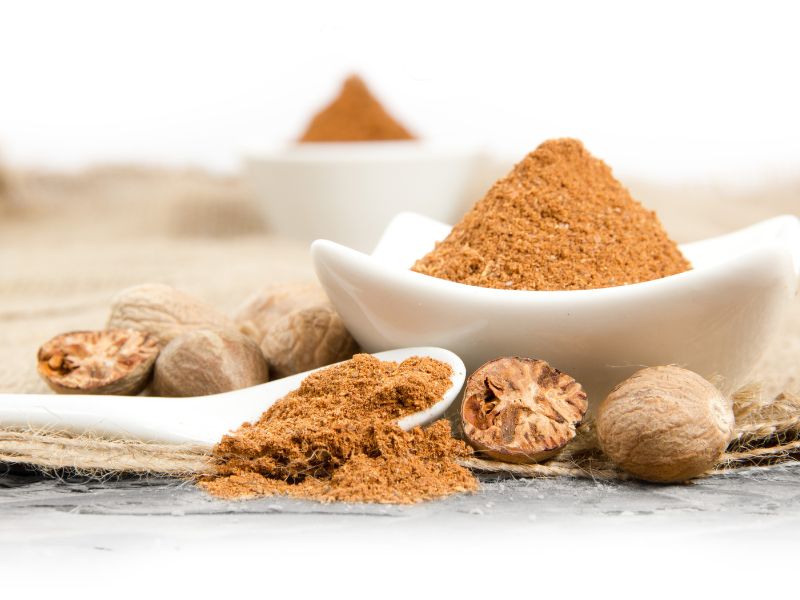Nutmeg, a popular spice native to the Indonesian Banda Islands, has found its way into kitchens worldwide. Known for its distinctive flavor and aroma, it’s a staple in sweet and savory dishes. Beyond its culinary uses, nutmeg has been attributed with potential health benefits. However, like many things, moderation is crucial regarding nutmeg consumption.
Nutritional Value
Nutmeg is not only renowned for its distinctive flavor and aroma but also for its exceptional nutritional profile. This spice contains vital minerals such as calcium, iron, potassium, and many antioxidants, including phytonutrients and essential oils. These potent elements play a significant role in harnessing nutmeg’s potential health benefits.

Canva. com
Digestive Aid
Nutmeg boasts essential digestive properties attributed to compounds like eugenol and myristicin. These elements have effectively alleviated digestive discomforts like indigestion, bloating, and gas. Furthermore, nutmeg has a longstanding tradition of treating various gastrointestinal ailments.
Brain Health
Nutmeg contains myristicin, a natural compound known for its cognitive-boosting properties. Research suggests that myristicin may help improve memory and cognitive function, making nutmeg a potential ally in brain health.

Canva. com
Anti-Inflammatory And Antioxidant Properties
The antioxidants in nutmeg can help combat oxidative stress in the body, potentially reducing inflammation. It may positively affect various aspects of health, including heart health and arthritis.
While nutmeg has potential health benefits, it’s essential to exercise caution. Consuming large quantities of nutmeg can lead to nutmeg poisoning, also known as myristicin poisoning. Symptoms may include nausea, dizziness, hallucinations, and, in severe cases, convulsions and palpitations. Therefore, using nutmeg sparingly and following recommended culinary guidelines is crucial.
